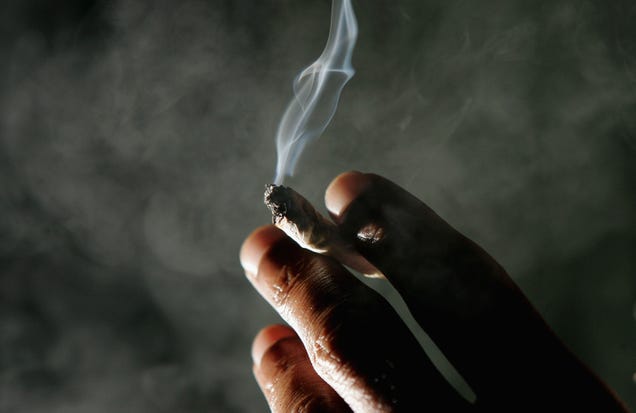
Seeing as this may be the last story you read this year why don’t we close the night out with some positive news?
from The Root https://ift.tt/2ZHaPvx

Seeing as this may be the last story you read this year why don’t we close the night out with some positive news?
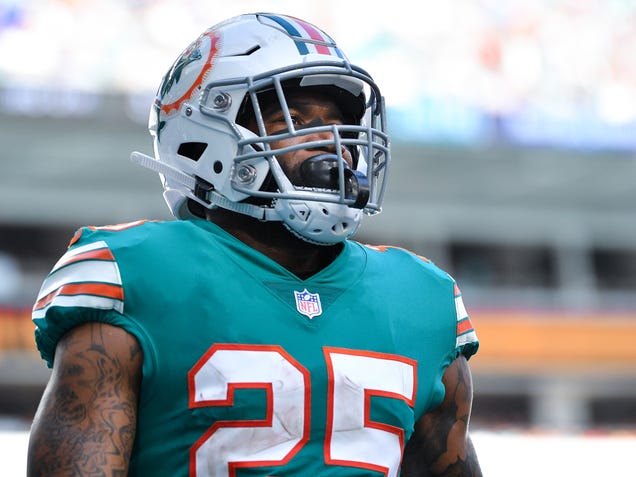
Xavien Howard, a cornerback for the Miami Dolphins, was arrested late Sunday night on domestic battery charges.

It seems as if the longer President Trump is in office, the more blatant racists are going about the flaunting of their ignorance. According to CNN, West Virginia governor Jim Justice will terminate every cadet who posed for photographs giving the nazi salute.
In a press release, West Virginia Governor, Jim Justice stated, after receiving and reviewing the official report completed by the West Virginia Department of Military Affairs and Public Safety related to the West Virginia Division of Corrections and Rehabilitation Academy Class 18 and has approved the recommendations submitted by DMAPS Secretary Jeff Sandy.
“I have reviewed the factual information regarding this incident that was provided by Secretary Sandy, and have approved all of his recommendations,” Gov. Justice said. “I expressed my thanks to him and the entire Department for quickly getting this report done.
“As I said from the beginning, I condemn the photo of Basic Training Class 18 in the strongest possible terms. I also said that this act needed to result in real consequences – terminations and dismissals. This kind of behavior will not be tolerated on my watch in any agency of State government.
“We have a lot of good people in our Department of Military Affairs and Public Safety. But this incident was completely unacceptable. Now, we must continue to move forward and work diligently to make sure nothing like this ever happens again.”
Below is the letter sent to West Virginia Governor Jim Justice sent from DMAPS Secretary Jeff Sandy:
On Wednesday, November 27th, 2019 following the Corrections Academy graduation of Class 18 in Glenville, West Virginia, we received information about “unbecoming conduct” on the part of two staff members and cadets from Basic Class 18. These individuals failed to maintain the high level of professionalism demanded by your administration.
Per your orders, attached is Commissioner Betsy Jividen’s transmittal memorandum and the Executive Report. Based on the report, I recommend the following:
(1) Termination of one additional Academy staff member who failed to report the content of the class photograph, the substance of conversations with Instructor Byrd regarding the practice and the photograph, and also her knowledge of the ongoing conduct, thereby contributing to the negative perception and indelible harm that has resulted from the incident. This brings the total number of Academy staff terminations to three at this point in time.
(2) Suspension without pay for four Academy Instructors who are currently known to have seen the photograph and failed to report its content, or to have witnessed Instructor Byrd and her class participating in this conduct and while making attempts to stop it, failed to take the necessary steps to report the conduct and to ensure that it was, in fact, no longer occurring, thereby contributing to the negative perception and indelible harm that has resulted from the incident.
(3) I am further recommending the termination of all cadets participating in the open-handed salute and the closed fist salute in the class photograph. As the Executive Summary also reflects, some other cadets stated variously that they were aware of the connotations associated with the gesture, that they were uncomfortable with the practice, that they did not participate in its use during class, and/or that they only followed what they perceived to be an order from Instructor Byrd to do the “Hail Byrd” for the photograph because they feared they would not graduate, or would be disciplined for failure to follow the order of a superior. Nonetheless, their conduct, without question, has also resulted in the far-reaching and harmful perceptions that are the antithesis of the values we strive to attain. The inevitable consequence of the conduct has not only damaged the reputation of the Division of Corrections and Rehabilitation, but also negatively impacts morale across the workforce.
I concur with the Commissioner’s actions to date and her recommendations for addition training. Although, it would have been best for the state had this event never happened; the event showed that your mandate of having a transparent Department of Military Affairs and Public Safety has worked. The citizens of West Virginia should be proud of the transparency exercised in the handling of this unfortunate event and how the Commissioner and Inspector General have worked to bring this matter to a quick conclusion.
During this highly publicized event, I have personally received communications from domestic and international law enforcement; federal authorities; and domestic political figures praising the transparency and expediency with which this matter was handled.
If you have any questions about my recommendations, the Commissioner Jividen, the Inspector General, the MAPS Legal Team, and I are available to provide any additional information.

Another day, another example of police officers just being straight trash. I really don’t have any other way to put it.
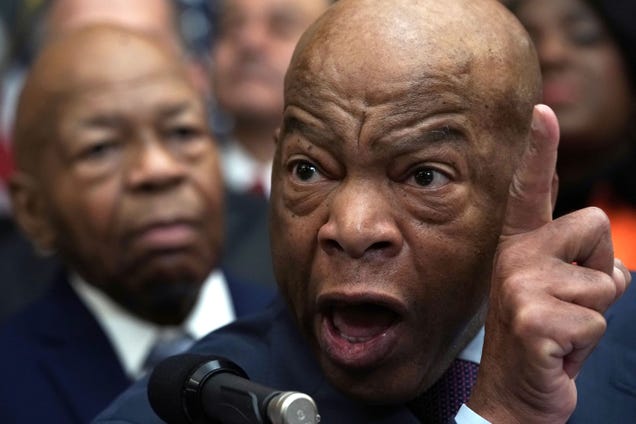
Gayle King is on vacation celebrating her 65th birthday and the folks at CBS News have lost their minds.
CBS News admitted Tuesday that it made what seems to be a common media mistake: reporters and producers confusing Rep. John Lewis and the late Rep. Elijah Cummings.
About an hour after airing a report on the health of Lewis, the civil rights icon and Georgia congressman, who revealed that he is battling stage IV pancreatic cancer, using a photo of Cummings, the Maryland congressman who died in October at age 68. CBS issued an apology for the mistake saying: “We deeply regret the error,’’ the apology statement read, in part.
READ MORE: Leaders react with support, expressions of love after John Lewis cancer announcement
The hour in between broadcasting the mistake on the CBS Evening News and making their apologies, social media roasted the network nonstop, spreading the error far and wide.
Both Lewis and Cummings are legendary for their work in the area of civil rights and both men have played significant roles in progressive politics for more than half a century. While both are African American men from the Civil Rights generation (and do bear a similar physical appearance), they represent different districts and have served different purposes in Congress. Lewis chairs the Oversight subcommittee of the House Ways and Means Committee. Cummings was chair of the House Oversight Committee.
CBS is at least the second network this year to mix Cummings and Lewis up.
Back in June, Fox News aired a clip of Lewis in a committee hearing — with his nameplate in the camera shot — and identified him as Cummings. The network was criticized apologized soon after. Also, in 2017, CNN tweeted out a link to an interview with Cummings using Lewis’ picture.
READ MORE: Rep. Elijah Cummings: Politicians and celebrities react to sudden death of Baltimore congressman
Several social media posts surfaced with either condolences about the passing of Lewis, or condolences for Cummings with photos of Lewis, or both. For a while the day of Cummings’ passing, John Lewis was trending on Twitter, enraging many.
Confusing Black people in the media is not a new phenomenon, as singer Patti LaBelle discovered last year after Aretha Franklin died and this surfaced on, again, Fox News. And also as Angela Bassett and Omarosa found out after an item from last year’s Emmy Awards was published in The New York Times.
The post CBS figures out John Lewis and Elijah Cummings are two different Black men; issues mea culpa appeared first on theGrio.
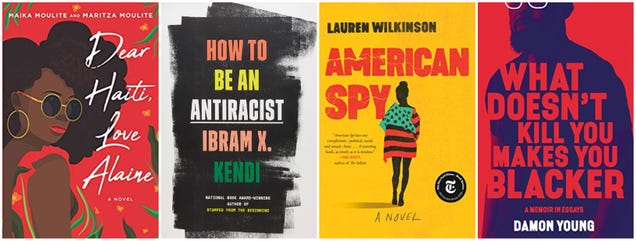
With all the writing we do here at The Root, it’s a wonder we find time to read. But for many members of our staff, books remain our first love, so while we reflect on the highlights of 2019, we’re also reminded of some of the great reads we encountered this year.
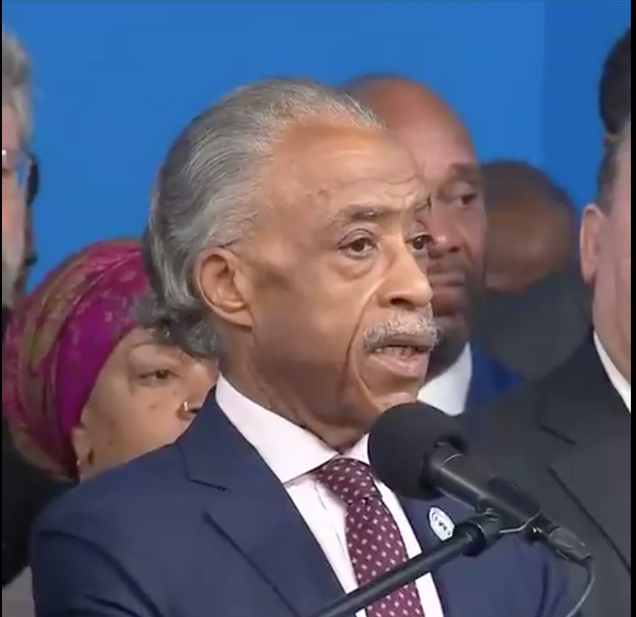
Rev. Al Sharpton denounced anti-Semitism Monday after 37-year-old Grafton Thomas from Orange County, New York, was charged with a federal hate crime in the Dec. 28 stabbing of five Jewish people during a Hanukkah celebration.
Philadelphia, in a response to a dilemma in which the city was facing turmoil and scandal in law enforcement has hired an African American woman — the first ever — to lead its police department in hopes she will help the city turn a corner.
Danielle Outlaw, 43, who has served chief of police in Portland, Ore., since 2017, was announced as Philadelphia’s new police commissioner on Monday by Mayor Jim Kenney, four months after her full-time predecessor was forced to resign amidst a sexual harassment scandal, the Philadelphia Inquirer reported.
Outlaw, a native of Oakland, is the first Black woman ever to run the Philadelphia police, and the second woman overall, following the acting commissioner brought on in August, Christine Coulter. Outlaw is also the youngest commissioner in at least two decades, according to the Inquirer.
But the new top cop is walking into a minefield, starting with but not limited to the way the job opened. Former commissioner Richard Ross resigned in August when a lawsuit surfaced accusing him of ignoring sexual harassment claims of an officer against a fellow officer. Ross, also an African-American, had been with the department for 30 years and had held the position since January 2016.
READ MORE: Philly police chief resigns as sexual harassment and discrimination claims roil department
Multiple cases of harassment, and of gender and racial discrimination in the department, surfaced after that. In addition, the crime rate in the city has continued to soar, as has the poverty level.
“I am very qualified to make the jump,” Outlaw said in her introductory press conference. “The issues remain the same. I am very experienced in each of them.”
Outlaw came out on top of a search of 31 candidates, 18 of which were from the Philadelphia force, the Inquirer said. Several factions pushed for a woman of color to get the job, and although many had favored one already in the force, they are glad the city was willing to take the leap to reward a previously-under-represented group.
“Most of us are very encouraged,” Philadelphia city councilwoman Jannie L. Blackwell told the Inquirer about her fellow council members. “They’re especially happy that she’s a woman — and happy of course that it’s an African American woman — but especially happy that she’s a woman.”
READ MORE: 13 Philadelphia cops to be terminated after offensive Facebook posts
Outlaw also came with the endorsement of the head of the police union in her former home of Portland, Daryl Turner: “You’re getting a damn good chief. We hate to lose her.”
The post Philadelphia police, roiled by harassment scandal, brings in Black woman to turn it around appeared first on theGrio.
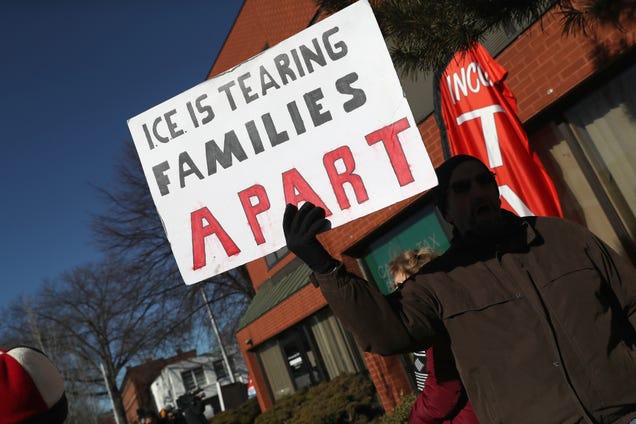
Pastor Guillermo Maldonado of King Jesus International Ministry Church in Miami addressed concerns of hundreds of parishioners in a Spanish-language service on Sunday.
Kanye West used the one-year anniversary of his Sunday Service to give some public support to a fellow rapper and his quest to preserve his adult daughter’s sexual purity. It wasn’t noticeably embraced by his Los Angeles audience, and didn’t seem to be a completely logical fit with the rest of his message.
In the midst of his service at Union Rescue Mission, a homeless shelter in Los Angeles, Kanye gave a shout-out to the embattled T.I., whose discussion about taking his daughter annually to assure that her hymen is intact (and thus, in his mind, her virginity) set off a public firestorm.
For his part, however, T.I., later appeared on Jada Pinkett Smith’s Facebook Live show ‘Red Table Talk’ and contritely explained that he did not mean to be taken literally when he made the comment.
OPNION: How Jada Pinkett Smith schooled an ‘incredibly apologetic’ T.I. during a candid ‘Red Table Talk’
Still T.I.’s actions, West told the crowd, were “God-approved,’’ as opposed to “devil-approved,’’ in video shown on TMZ.com. His remarks before and after that were about the appreciation of his presenting his Sunday Service for an entire year, and about multiple states’ death-penalty statutes and “a worldwide solution” to the homeless problem personified by the location of that current service.
“They tryna play T.I., but he’s talkin’ about somethin’ that’s God-approved,” West told the crowd in the clip TMZ showed. The New York Post said the comment, was “met by silence from the audience.’’ That differed from the louder, more positive reactions to his later remarks about his Sunday Services being an “alternative to opioids” and an “alternative to pornography.’’
READ MORE: Killer Mike calls out T.I. and Candace Owens for arguing over ‘who got the best master’
On the TMZ video snippet, West prefaced his T.I. comment with one about how “people love to take a soundbite and say, ‘This was not exactly devil-approved by the internet.’ ” That appeared to refer to the avalanche of online condemnation following T.I.’s remarks about his daughter.
West also randomly mentioned talking to Elon Musk and, calling it a “shameless name-drop,” alluding to a discussion with him about homelessness and addiction problems commonly confronted by Union Rescue Mission.
The post Kanye approves of T.I.’s controversial fatherhood remarks; claims God does, too appeared first on theGrio.
Democratic presidential front-runner Joe Biden may be taking the idea of reaching across the aisle farther than his 2020 election competitors.
According to CNN, while at a campaign stop in Exeter, N.H., Monday, the former vice president answered a question about whether he would consider picking a Republican as his vice-presidential running mate, with, “The answer is I would, but I can’t think of one now.”
READ MORE: Joe Biden on racism — White people ‘can never fully understand’
Biden made the remark in the state which will hold the first Democratic primary in less than two months. Until this revelation, all the speculation about his running mate had centered around non-white males, such as former Georgia gubernatorial candidate Stacey Abrams and former candidate Sen. Kamala Harris.
While Biden has consistently struck a conciliatory, cooperative tone about working with Republicans, that party has shown little desire to return the favor to him. The root of the improprieties that got President Trump impeached recently was his and his administration’s attempts to engage Ukraine in digging up incriminating information to use specifically against Biden.
There has not been a major-party presidential ticket in modern times in which the nominee and his or her running mate has been from the opposing party. According to CNN, the late GOP senator John McCain considered Democratic senator Joseph Lieberman in 2008, but settled on Republican Sarah Palin to eventually be beaten by Barack Obama and Biden.
READ MORE: Joe Biden remains top choice for Black voters, according to new poll
For what it’s worth, Biden clarified his statement in Exeter by saying, “You know there’s some really decent Republicans that are out there still, but here’s the problem right now … they’ve got to step up.
“There’s a plethora of really qualified people,’’ Biden said. “Whomever I would pick were I fortunate enough to be your nominee, I’d pick somebody who was simpatico with me, who knew what I, what my priorities were and knew what I wanted to.’’
The post Joe Biden, heading into primary season, says he’s OK with a GOP running mate appeared first on theGrio.
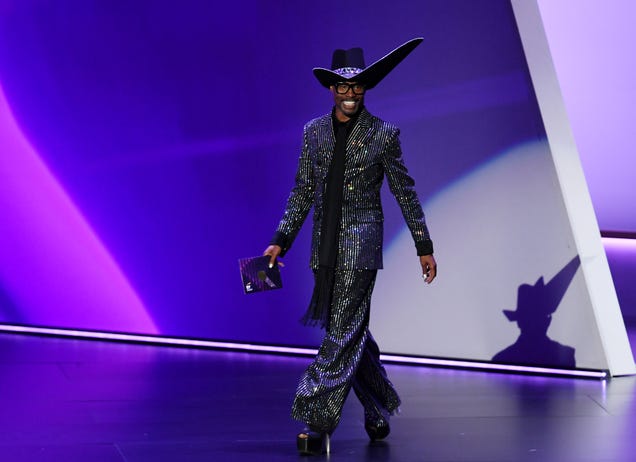
If there’s one thing black folk are—it’s creative. Whether through necessity or just burned into our melanin-ness, we make sumptuous meals from scraps, our bodies defy gravity when we dance; and we have reimagined fashion, hair, sport, ways of looking at the world, or even naming our children in our burnished image…

Who says going out to a party is the best way to ring in the New Year? Some of the most satisfying moments in life are when we’re having fun in an intimate setting with friends and family. Below, we’ve rounded up a few unique ways you can celebrate New Year’s Eve.
Plan a game night.
Whether you want to put an adult twist to one of your favorite childhood games, such as Jenga and Tic-Tac-Toe, or opt for a new game like Black Card Revoked; an Afrocentric trivia game; there are plenty of fun options to keep you having fun into the early morning hours of New Year’s day. Add some delicious food and spirits, and you’re in for a great New Year’s Eve.
Host a New Year’s Eve dinner party with friends.
A classic way to bring in the New Year, but classic doesn’t mean boring, right? A New Year’s dinner party with family and friends is a great way to reflect on the past year and chat about plans for the New Year. Perhaps you can host a cook-off or prepare a tasting menu of festive finger foods. Check out a few New Year’s Eve recipes on Food Network and MarthaStewart.com. And, for champagne cocktails–check out Bustle.com.
Host a masquerade party.
Plan an evening of mystery and magic with a themed masquerade party. Beyond requesting that guests wear masquerade masks, you can ask them to bring their favorite dish and bottle of champagne, or you can feature several drinks from around the world.
Attend church.
From plays and musical concerts to games and speakers, many churches plan a series of watch-night events to usher in the New Year.
Plan the ultimate date night.
Looking forward to some quality time with your sweetie? Whether you’re in the mood for a romantic evening of food and bubbly at a great city restaurant, or a bonfire on the beach with a sparkling fruit sangria, there are several great ways you can ring in the New Year with your love. Check out PopSugar for a great list of fun and sexy date ideas.
Editor’s Note: This story originally published on December 27, 2018

Who says going out to a party is the best way to ring in the New Year? Some of the most satisfying moments in life are when we’re having fun in an intimate setting with friends and family. Below, we’ve rounded up a few unique ways you can celebrate New Year’s Eve.
Plan a game night.
Whether you want to put an adult twist to one of your favorite childhood games, such as Jenga and Tic-Tac-Toe, or opt for a new game like Black Card Revoked; an Afrocentric trivia game; there are plenty of fun options to keep you having fun into the early morning hours of New Year’s day. Add some delicious food and spirits, and you’re in for a great New Year’s Eve.
Host a New Year’s Eve dinner party with friends.
A classic way to bring in the New Year, but classic doesn’t mean boring, right? A New Year’s dinner party with family and friends is a great way to reflect on the past year and chat about plans for the New Year. Perhaps you can host a cook-off or prepare a tasting menu of festive finger foods. Check out a few New Year’s Eve recipes on Food Network and MarthaStewart.com. And, for champagne cocktails–check out Bustle.com.
Host a masquerade party.
Plan an evening of mystery and magic with a themed masquerade party. Beyond requesting that guests wear masquerade masks, you can ask them to bring their favorite dish and bottle of champagne, or you can feature several drinks from around the world.
Attend church.
From plays and musical concerts to games and speakers, many churches plan a series of watch-night events to usher in the New Year.
Plan the ultimate date night.
Looking forward to some quality time with your sweetie? Whether you’re in the mood for a romantic evening of food and bubbly at a great city restaurant, or a bonfire on the beach with a sparkling fruit sangria, there are several great ways you can ring in the New Year with your love. Check out PopSugar for a great list of fun and sexy date ideas.
Editor’s Note: This story originally published on December 27, 2018
It’s hard to ignore “late to the game” presidential candidate and former New York City Mayor Michael Bloomberg. The billionaire businessman has already shelled out millions during the first week his television ads ran across the country in hopes that all of America would become more familiar with where he stands on the issues. In doing so, however, a new analysis conducted by Advertising Analytics shows that Bloomberg has caused ad rates to explode across the board.
The New York Post reports that all of this spending is having a ripple effect on advertising costs for the other candidates and even other advertisers.
READ MORE: Michael Bloomberg severs ties with firm that hired prison laborers to make campaign calls
According to Advertising Analytics, “the typical [TV] market increased their rates by 22 percent as the political spending poured in.”
“Houston was among the markets that responded most actively to the new advertiser,” it added. “This is partially attributable to Bloomberg’s $1 [million] buy increasing the political spending in the market tenfold. This shock spending increase was matched by a 45% increase in rates, which is among the highest of any market.”
Bloomberg spent an average of $25.5 million a week on campaign ads since announcing his Presidential candidacy just last month in November. Since then, he has booked $119 million in TV ads. He is also tapping into the digital ad space booking $15.2 million in digital ads, reports Advertising Analytics.
READ MORE: Antonio Brown stirs up fans with “No More White Woman 2020” campaign
There’s no historical comparison to Bloomberg’s early ad spending, said John Link, Advertising Analytics vice president of sales and marketing, to the NY Post.
According to the data procured by Advertising Analytics, which breaks down the spending even further, Bloomberg spent nearly $6 million on YTV ads in both the Los Angeles and New York City markets, $4 million in Houston, $3.8 million in Dallas/Ft. Worth, $3.6 million in San Francisco, $3.5 million in Miami, more than $2.6 million in Chicago and Orlando, $2.4 million in Seattle/Tacoma, $2.2 million in District of Columbia and about $2 million each in Philadelphia, Boston and Tampa.
The total is a whopping $135 million in TV and digital ads alone and he hasn’t even participated in a debate yet.
If the Bloomberg campaign continues at this pace, it’s being said that the former mayor could spend up to $357 million on TV ads by the time the March 2020 primaries come about. Remember, this doesn’t include the costs necessary to actually run the rest of his campaign which will include staffers in various cities to spread the word about his political ideology across the country. If he wins the Democratic nomination, experts believe the final price tag could cost Bloomberg more than $1 billion.
Is it worth it? Although there has been a huge bump in the polls since he put his name in the hat, the spending spree will continue. The Bloomberg campaign repeated its mission on Friday that another four years of Donald Trump would be devasting to the country and so they are willing to spend “whatever it takes” to beat him next year.
The post Michael Bloomberg spends over $100 million on political TV ads causing rates to soar for other candidates appeared first on theGrio.
After a full day of widespread outrage over a report of a Kansas officer receiving a coffee at McDonalds with “pig” and a profanity scrawled on the cup, the local police chief admitted late Monday night that the officer had made the story up as a hoax and the officer has been fired.
“Now, this is absolutely a black eye on law enforcement,” Herington, Kan., police chief Brian Hornaday said in a joint press conference with a representative of McDonalds, according to KSNT-TV in Topeka.
READ MORE: Philly teen boys brutally assault McDonalds worker after she refuses to give them free food
Ironically, it was Hornaday who had posted the original photo, scolding the Junction City McDonalds, pointing out that the officer who allegedly had received it was a military veteran, asked to “please share!”
As a kicker, the police chief called the incident “a black eye for Junction City.’’
He later took the post down, but not after nearby law enforcement people had joined in; the county sheriff’s office declared that the coffee incident “is not indicative of the community.’’ In addition, some on social media had started demanding that the unknown culprit be fired.
READ MORE: Reports shed new light on Chicago police chief’s firing
It turns out, though, that McDonalds did a better job of investigating the situation than the sworn officers of the law. Franchise owner Dana Cook told KSNT that it checked its own security video, and it “clearly shows the words were not written by one of our employees.”
Now, the department is eating its words. Hornaday, who had gone on camera to defend the officer, later declined to identify that officer because it was a “personnel matter.’’ But KSNT reported that the officer is 23 years old, a resident of Junction City and served five years in the U.S. Army as a military police officer.
The post Cop fired after ‘pig’ written on coffee cup incident turns out to be hoax appeared first on theGrio.

I’ve been a resident of the Atlanta area of Georgia “The Peach State” for 25 years, and for at least a quarter of that time, I’ve brought in the new year in Underground Atlanta, standing shoulder to shoulder with thousands of fellow transplants, Atliens and out of town visitors as we await the city’s decades long…
A man charged with federal hate crimes Monday in a bloody attack on a Hanukkah celebration had handwritten journals containing anti-Semitic references and had recently used his phone to look up information on Hitler and the location of synagogues, authorities said.
Grafton Thomas, 37, was held without bail after appearing in federal court in White Plains on five counts of obstructing the free exercise of religious beliefs by attempting to kill with a dangerous weapon. Five people were stabbed and slashed in the Saturday attack north of New York City.
READ MORE: Officials say Jersey city gun massacre attackers are suspects in earlier killing
A blood-stained 18-inch (45-centimeter) machete was recovered from his car, along with a knife smeared with dried blood and hair, prosecutors said in a criminal complaint.
Thomas, his ankles shackled, shuffled into the courtroom in a prison jumpsuit, telling a judge who asked him if his head was clear that he was “not clear at all” and needed sleep. But he added: “I am coherent.”
His court-appointed attorney, Susanne Brody, said Thomas has struggled with bipolar disorder and schizophrenia. Another attorney retained by his family, Michael Sussman, said Thomas had been hearing voices and may have stopped taking psychiatric medications recently.
The stabbings on the seventh night of Hanukkah came amid a series of violent attacks targeting Jews in the region that have led to increased security, particularly around religious gatherings.
READ MORE: Jersey City attack being investigated as domestic terrorism
A criminal complaint said journals recovered from Thomas’ home in Greenwood Lake included comments questioning “why ppl mourned for anti-Semitism when there is Semitic genocide” and a page with drawings of a Star of David and a swastika.
A phone recovered from his car included repeated internet searches for “Why did Hitler hate the Jews” as well as “German Jewish Temples near me” and “Prominent companies founded by Jews in America,” the complaint said.
On the day of the stabbings, the phone’s browser was used to access an article titled: “New York City Increases Police Presence in Jewish Neighborhoods After Possible Anti-Semitic Attacks. Here’s What To Know,” the complaint said.
Sussman told reporters he visited Thomas’ home and found stacks of notes he described as “the ramblings of a disturbed individual” but nothing to point to an “anti-Semitic motive” or suggest Thomas intentionally targeted the rabbi’s home.
“My impression from speaking with him is that he needs serious psychiatric evaluation,” Sussman said. “His explanations were not terribly coherent.”
Thomas’ family said he was raised to embrace tolerance but has a long history of mental illness, including multiple hospitalizations.
“He has no history of like violent acts and no convictions for any crime,” his family said in a statement. “He has no known history of anti-Semitism and was raised in a home which embraced and respected all religions and races. He is not a member of any hate groups.”
READ MORE: President Obama urges all Americans to ‘fight the rise of anti-Semitism’
Thomas served in the Marines and was president of his class at a high school in Queens, Sussman said. He attended William Paterson University between 2005 and 2007, the university confirmed, where he played football as a walk-on running back.
Thomas’ family said his mental health deteriorated over the years. He would hear voices and have trouble completing sentences at times. Thomas said a voice talked to him about property that was in the rabbi’s house, according to Sussman.
In court papers filed in a 2013 eviction case in Utah, Thomas said he suffered from schizophrenia, depression and anxiety and his “conditions are spontaneous and untamed.”
Thomas was arrested within two hours of the Saturday night attack in Monsey. When police pulled his car over in Manhattan, he had blood all over his clothing and smelled of bleach but said “almost nothing” to the arresting officers, officials said.
Thomas’ aunt told The Associated Press that he had a “germ phobia” and obsessively washed his hands and feet with bleach.
She said Thomas grew up in the Crown Heights neighborhood of Brooklyn and “lived peacefully” among Jewish neighbors. She said Thomas had not been taking his medication and recently went missing for a week.
The woman spoke on the condition of anonymity out of fear she would lose her government job for speaking publicly.
“They’re making him look like this monster,” she said in a telephone interview. “My nephew is not a monster. He’s just sick. He just needs help.”
According to the complaint, Thomas, a scarf covering his face, entered the rabbi’s home next door to a synagogue and said “no one is leaving.” He then took out a machete and started stabbing and slashing people in the home packed with dozens of congregants, the complaint said.
The five victims suffered serious injuries — including a severed finger, slash wounds and deep lacerations — and at least one was in critical condition with a skull fracture, the complaint said.
On Sunday, Thomas pleaded not guilty to charged including five counts of attempted murder. He was detained on $5 million bail.
In a release, U.S. Attorney Geoffrey S. Berman said Thomas “targeted his victims in the midst of a religious ceremony, transforming a joyous Hanukkah celebration into a scene of carnage and pain.”
Thomas’ criminal history includes an arrest for assaulting a police horse, according to an official briefed on the investigation who was not authorized to discuss the matter publicly and spoke to the AP on condition of anonymity. A lawyer representing Thomas at the arraignment said he had no convictions.
The criminal complaint said one passage in Thomas’ journals stated that the “Hebrew Israelites” took from the “ebidnoid Israelites.” The FBI agent who wrote the complaint said that appeared to be a reference to the Black Hebrew Israelite movement, some branches of which have been associated with anti-Semitism.
The attack was the latest in a string of violence targeting Jews in the region, including a Dec. 10 massacre at a kosher grocery store in New Jersey. Last month in Monsey, a man was stabbed while walking to a synagogue. No arrest has been made in that stabbing.
Gov. Andrew Cuomo, a Democrat, said Saturday’s savagery was the 13th anti-Semitic attack in New York since Dec. 8.
Monsey, near the New Jersey state line about 35 miles (56 kilometers) north of New York City, is one of several Hudson Valley communities that has seen a rising population of Hasidic Jews in recent years. At a Sunday celebration that was planned before the attack, several members of the community stood guard armed with assault-style rifles.
“The Jewish community is utterly terrified,” Evan Bernstein, the regional director of the Anti-Defamation League of New York and New Jersey, said in a statement. “No one should have to live like this.”
In New York City, the Rev. Al Sharpton appeared Monday with Jewish and other faith leaders at his Harlem headquarters and said he was disturbed and upset that several of the suspects in recent attacks on Jews have been black.
“We cannot remain silent as we see a consistent pattern of attacks on people based on their faith and who they are,” Sharpton said. “You can’t fight hate against you if you aren’t willing to fight hate against everybody else.”
The post Officials: Hanukkah attack suspect researched Hitler online appeared first on theGrio.
What is probably the most well-known news organization in the world has doubled back on an opinion piece, cutting out a reference to an academic paper co-authored by an alleged white nationalist.
The New York Times removed references to a 2005 study from a column by Bret Stephens titled “The Secrets of Jewish Genius,” The New York Post reports. The piece that claims Ashkenazi Jews have the highest average IQs was partly authored by the late Henry Harpending, an anthropologist listed by the Southern Poverty Law Center as a White nationalist, according to the Post.
READ MORE: Poll reveals most Americans oppose cash reparations for slavery
Stephens wrote in his piece published Friday that Jews “are, or tend to be, smart” and “might have a marginal advantage over their gentile peers when it comes to thinking better.”
Social media blew up when the piece was published, with social media users saying the opinion piece did nothing to support harmony.
“I don’t know who needs to hear this, but Jews are normal people,” posted Moshik Temkin, @moshik_temkin. “Some are smart, some are dumb, and most are somewhere in-between.”
Temkin added, “You should be suspicious of anyone who thinks Jews are special — that’s a big part of antisemitic thinking.”
READ MORE: Jersey City attack being investigated as domestic terrorism
U.S. Sen. Brian Schatz, a Democrat from Hawaii, who is Jewish, joined the debate too, tweeting that the piece “crossed a very important line.”
The Southern Poverty Law Center, an organization in Mongtomery, Ala., that tracks hate, posted that the study “traffics in centuries-old antisemitic tropes.”
The editor’s note on the Times piece indicated that Stephens was not “endorsing the study or its author’s views, but it was a mistake to cite it uncritically.”
The note continued, “The effect was to leave an impression with many readers that Mr. Stephens was arguing that Jews are genetically superior. That was not his intent.”
The note concluded that Stephens “went on instead to argue that culture and history are crucial factors in Jewish achievements.”
The post New York Times cuts study blasted as racist from controversial op-ed piece appeared first on theGrio.
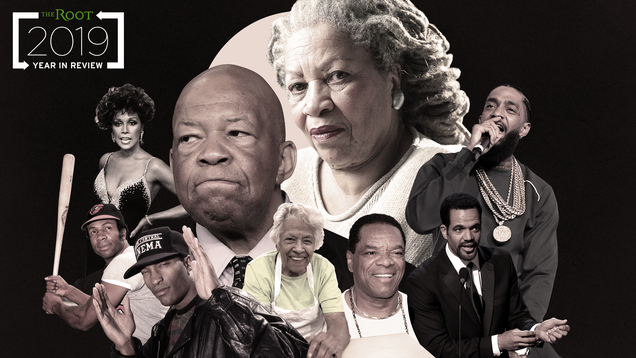
The year 2019 took us on a rollercoaster ride of emotions: It began with the swearing-in of the most diverse Congress in U.S. history and culminated with the impeachment of the president. In between, we witnessed rap going country with Lil Nas X’s “Old Town Road”; Lizzo blowing up big with performances at the BET…

Watch out Starbucks, there’s a coffee shop preparing for an expansion! According to the Jarkata Post, Indonesian coffee chain Kopi Kenangan has received funding from Shawn “Jay-Z” Carter and Serena Williams.
The company announced an expansion of its June Series A round with additional investments from Jay-Z’s Arrive, Serena Williams‘ Serena Ventures, Brooklyn Nets‘ basketball player, Caris LeVert, and Sweetgreen CEO and co-founder Jonathan Neman.
“We are inspired by Kopi Kenangan’s tenacity, vision, and ability to execute,” said Neil Sirni, Arrive co-founder and president in a press release. “In just two years, they have expanded to 18 cities, 200 stores, and over 1,800 employees. We’re excited to be an investor in and partner to Kopi Kenangan as they introduce Indonesian-style coffee to the world.”
Kopi Kenangan opened by Edward Tirtanata, James Prananto, and Cynthia Chaerunnisa in 2017 has managed to fill a void between the high-priced coffee served at international coffee chains and the instant coffee sold at many street stalls. Just last year, Kopi Kenangan, operated 16 stores and served a few thousand cups a day. Now, they have expanded to over 200 stores and serve more than 3 million cups of beverages monthly.
Related: Serena Williams Launched a Venture Firm to Invest in Diverse Founders
Kopi Kenangan is the fastest-growing grab-and-go non-franchise coffee retail chain in Southeast Asia. “We are humbled to have been able to reach an important milestone in our two years’ journey,” said Cynthia Chareunnisa, co-founder and chief marketing officer. “We recognize that this is a joint effort from our Teman Mantan which includes our baristas and employees, partners, shareholders, and most importantly our customers who have made us top-of-mind for Kopi Susu.”
The company has future plans to add more than a thousand new stores over the next two years and expand across Southeast Asia. “We want to build a legendary brand, and we’re excited to work with our new investors and advisors who have built global consumer franchises spanning sports, entertainment, F&B, and technology,” said Edward Tirtanata, CEO and co-founder. “We have come a long way since our humble beginnings two years back and want to continue learning and improving our service and products to meet the expectations of our customers in Indonesia and other markets.”

Watch out Starbucks, there’s a coffee shop preparing for an expansion! According to the Jarkata Post, Indonesian coffee chain Kopi Kenangan has received funding from Shawn “Jay-Z” Carter and Serena Williams.
The company announced an expansion of its June Series A round with additional investments from Jay-Z’s Arrive, Serena Williams‘ Serena Ventures, Brooklyn Nets‘ basketball player, Caris LeVert, and Sweetgreen CEO and co-founder Jonathan Neman.
“We are inspired by Kopi Kenangan’s tenacity, vision, and ability to execute,” said Neil Sirni, Arrive co-founder and president in a press release. “In just two years, they have expanded to 18 cities, 200 stores, and over 1,800 employees. We’re excited to be an investor in and partner to Kopi Kenangan as they introduce Indonesian-style coffee to the world.”
Kopi Kenangan opened by Edward Tirtanata, James Prananto, and Cynthia Chaerunnisa in 2017 has managed to fill a void between the high-priced coffee served at international coffee chains and the instant coffee sold at many street stalls. Just last year, Kopi Kenangan, operated 16 stores and served a few thousand cups a day. Now, they have expanded to over 200 stores and serve more than 3 million cups of beverages monthly.
Related: Serena Williams Launched a Venture Firm to Invest in Diverse Founders
Kopi Kenangan is the fastest-growing grab-and-go non-franchise coffee retail chain in Southeast Asia. “We are humbled to have been able to reach an important milestone in our two years’ journey,” said Cynthia Chareunnisa, co-founder and chief marketing officer. “We recognize that this is a joint effort from our Teman Mantan which includes our baristas and employees, partners, shareholders, and most importantly our customers who have made us top-of-mind for Kopi Susu.”
The company has future plans to add more than a thousand new stores over the next two years and expand across Southeast Asia. “We want to build a legendary brand, and we’re excited to work with our new investors and advisors who have built global consumer franchises spanning sports, entertainment, F&B, and technology,” said Edward Tirtanata, CEO and co-founder. “We have come a long way since our humble beginnings two years back and want to continue learning and improving our service and products to meet the expectations of our customers in Indonesia and other markets.”
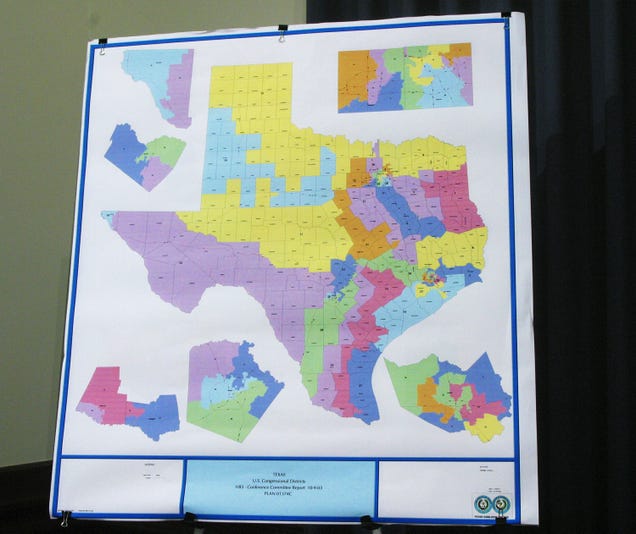
Over the last decade you may have heard the term gerrymandering thrown around. It refers to the process where legislators draw up heavily partisan districts for their states that often result in them getting a majority of the vote.
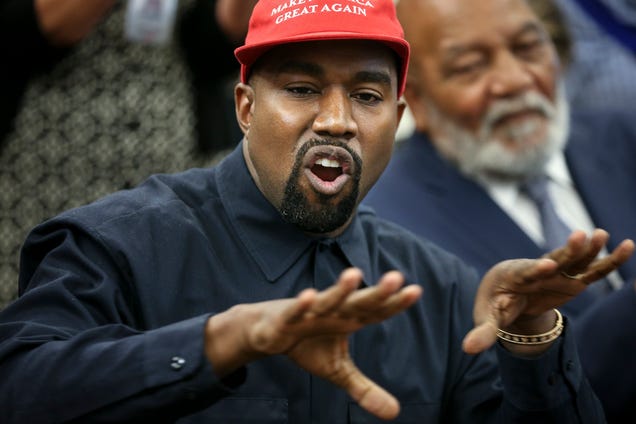
I really have to ask just what Bible this man is reading because what? I grew up in the church, I still attend and I identify as Christian. I don’t ever remember at any point the father, the son or the holy ghost talking about purity tests.

I don’t know what it is about the holiday season that would make someone go “Let me roast myself on a coffee cup to get them sweet sweet retweets,” but here we are.

The 2010s can be broadly defined in one word: Disruption.
The events, activities, trends, and platforms of the past decade spawned seismic shifts, heightened volatility, and produced breakthroughs. As such, these developments brought both promise and angst that reverberated throughout companies, industries, institutions, communities, generations, and cultures. The dichotomy of the times was evident as large numbers of African Americans spent the decade trying to recover from the devastation wrought by the Great Recession—the median net worth of black households stands at $17,100 versus $171,000 for white households—while others adroitly capitalized on financial gains from rampant technological innovation.
One constant: BLACK ENTERPRISE‘s role as chronicler, explainer, advocate, and guide for African Americans seeking wealth, power, and success in this era of ongoing foreboding and boundless opportunity. Here are five big stories of the decade from our unique perspective.
BLACK ENTERPRISE gained front-row access to cover a defining moment in history: The first African American President of the United States. From White House press conferences to exclusive interviews in the Oval Office and Air Force One, we shared how Barack Obama operated at the highest level in his role as “Leader of the Free World.”
During the two-term Obama presidency—marked by both achievement and tumult—we dissected presidential action and congressional dysfunction for our audience during one of the nation’s most financially and economically daunting times. Dealing with unresponsive, belligerent Republicans despite his overtures of collaboration, civility, and compromise, President Obama repaired the economy by placing the nation on the path to recovery after the brutal Great Recession; saved Detroit and millions of jobs after the forced bankruptcies and restructuring of GM and Chrysler; and implemented landmark reforms in financial services and healthcare, which provided access to 30 million uninsured Americans. In the process, he gave us a powerful model of global leadership.
Despite the surge of activity from this scandal-free Nobel Prize recipient, his presidency’s biggest casualty was the notion of a post-racial America. From the Trump-inspired birther movement to the alarming number of police shooting deaths of unarmed African Americans, these harrowing examples communicated our nation’s deep racial divide. Ironically, this discord came at a time when the nation celebrated the 50th anniversaries of the most notable civil rights milestones: the 1963 March on Washington, the Civil Rights Act of 1964, and the Voting Rights Act of 1965.
Among one of history’s most productive presidents, he demonstrated the effective use of executive orders to circumvent Republican resistance to policy initiatives as he and first lady Michelle Obama used the White House to promote technology, innovation, culture, health, and other vital aspects of American life.
In witnessing the shift in presidential leadership from Obama’s vision of hope and change to Trump’s embrace of fear and divisiveness, we now await the outcome of the 2020 election—and whether it will usher in a new political era.
Digital technology has permanently changed the way we work, live, play, transact business, and relate to one another. Tech disruption could be found in the evolution of the internet, mobile apps, connectivity, social media, streaming content, the gig economy—and much more. With the advancement of the fourth industrial revolution, those who continued to embrace the ways of the Luddite were destined to commercial, financial, cultural and social extinction.
BLACK ENTERPRISE was at the forefront of this trend. In addition to our coverage of the altered state of companies and industries as well as the promotion of tech as “the great equalizer” for African American entrepreneurs, we, too, planted our flag in Silicon Valley, the center of tech innovation. As a means of connecting African American executives, professionals, and founders and bringing talent to Silicon Valley-based tech companies focused on diversifying their ranks, we launched our Black Enterprise TechConneXt Summit—now called TCX—in 2015 to facilitate the “intersection of tech and opportunity.” From that point on, we would serve as a strong voice for African Americans within the ecosystem.
It was our intent to ensure that African Americans fully adapted to the rapidly changing, hyper-connected environment in which AI, VR, IoT, robotics, blockchain increasingly became the vehicles in which to conduct business and access consumers. Through conferences and content, our audience gained access to the industry’s most powerful leaders as well as prolific creators, including Microsoft Chairman John Thompson; TaskRabbitt CEO Stacy Brown-Philpot; former MetricStream CEO Shellye Archambeau; leading tech investor and Atom Factory CEO Troy Carter; former Brocade Communications CEO Lloyd Carney, to name but a few. And some of the innovative companies we discovered along the way like San Jose, California-based Overland Tandberg (No.56 on the Top 100 with $67 million in revenues) and San Francisco-based Rocket Lawyer (No. 60 on the Top 100 with $60 million in revenues) appear among the BE 100s—the nation’s largest black-owned businesses—while we continue to report on how entertainers and athletes —a group that includes Nas, Chamillionaire, Kobe Bryant, and Serena Williams—drive the industry as investors and VCs.
Moreover, we furthered the black talent pipeline through our BE Smart Hackathon. Designed to demonstrate the technical expertise of HBCU students and enable them to gain exposure, knowledge, and guidance from seasoned tech professionals, it has grown from five teams with 20 students to 15 teams of 60 students from schools such as Morgan State, Florida A&M, Fisk, Morehouse, and North Carolina A&T. In addition to taking tours of the Silicon Valley-based offices of AT&T, Salesforce.com, and Google, to name a few, participants have gained internships and job offers from an array of tech firms, financial services companies, automotive manufacturers, and retail giants.
The past decade demonstrated the inexorable expansion of the power and presence of women throughout all segments of society—most notably business and politics. Events also served to further expose decades of gender discrimination and intolerance that required immediate corrective action.
Through our Women of Power Summit, BLACK ENTERPRISE placed African American outstanding achievements and distinctive, intersectional challenges front and center. Although black women represent the most educated professionals and fastest-growing segment of entrepreneurs, they remain among the lowest-paid employees in the corporate workforce and the least-capitalized group of business owners. That’s why we increased our coverage and content to enable black female corporate executives and entrepreneurs to continue their upward climb despite institutional racism and sexism.
At the beginning of the decade, our most prominent example of black female business achievement was our February 2010 cover subject: Xerox Corp. CEO Ursula Burns, the first African American woman to helm one of the nation’s 500 largest publicly traded corporations. Over the decade, we have witnessed the elevation of a cadre of African American women to corporate leadership positions. In fact, our October 2017 roster of the 300 Most Powerful Executives in Corporate America had 92 female executives or roughly 31% of the group. The conundrum continues to be, however, the fact that the numbers grow at a snail’s pace despite an abundance of available talent. And when a top female executive retires, she’s rarely replaced by another black woman leader. Since Burns’ departure from Xerox in 2017, not a single African American woman has ascended to the CEO’s seat at a Fortune 500 corporation. Adtalem Global Education CEO Lisa Wardell currently represents the only black woman CEO of one of the 1,000 largest publicly traded corporations.
In terms of entrepreneurship, the collective number of black female CEOs of BE 100s industrial/service companies, auto dealerships, and financial services firms have declined from 25 to 20 over this 10-year span and only one operates a company with annual revenues of $1 billion or more: Janice Bryant Howroyd of Act-1 Group (No. 2 on the Top 100 with gross sales of $2.8 billion).
African American women also led the fight for workplace equality on issues that ranged from pay equity to sexual harassment. In fact, one of BE’s “25 Women Who Are Changing The World” in 2018 was Tarana Burke. The grassroots activist used her experience as a survivor of sexual violence to launch The Me Too Movement in 2006, a vehicle to help other women who have faced similar trials. A decade later, her thrust was transformed into the #MeToo hashtag that went viral on social media as a representation of women’s experiences with sexual harassment and assault as well as a warning to business leaders who accepted such unseemly behavior.
African American women harnessed their power in the political arena. To fight back incendiary, Trumpian politics and reverse the establishment’s status quo posture, black female politicians proved they were a force to be reckoned with in the 2018 midterms, picking up enough freshman seats to return the House of Representatives to Democratic control while installing incumbents in leadership positions like Congresswoman Maxine Waters’ oversight of the powerful House Financial Services Committee. This new force further exercised its clout during the impeachment process. And albeit unsuccessful, US Sen. Kamala Harris’ bid for the White House this year demonstrates that women of color will not be denied the opportunity to pursue—and possibly one day capture—the Oval Office.
In 2013, BLACK ENTERPRISE turned our attention to another nagging problem in corporate America: Lack of African American representation in the boardroom. As such, our editors developed the annual “Power in The Boardroom” report, featuring our BE Registry of Corporate Directors—a roster that identifies blacks who serve on boards of S&P 500 companies. Initially, we evaluated diversity in corporate governance at the leading 250 index companies and expanded our review to the entire S&P 500 universe in 2017 to gain a more accurate picture of corporate America’s performance when it comes to inclusion at the highest level.
The most impactful part of our editorial package: Our compilation of companies that refused to appoint black board members. Several years ago, we found the following corporations embraced a corporate governance structure that New York City Comptroller Scott Stringer described as being “male, pale and stale”: Amazon.com, Apple, Boston Properties, CVS, eBay, Facebook, Google (now Alphabet), Hewlett Packard, Netflix, and Visa. Through our coverage and the use of BE’s material by Rainbow PUSH Wall Street Project, Executive Leadership Council, Black Corporate Directors Conference, Congressional Black Caucus—among other civil rights groups and board diversity advocates—the aforementioned companies and many more currently have blacks on their boards and in some cases, more than one.
However, there is much work to be done in this area. In our 2019 report, our editors found that although each S&P 500 company has a white woman serving as a board member, there are still 187 index companies, or 37%, without a single black corporate director.
We continue to share the significance of board diversity with our audience: In addition to the governing body’s fiduciary responsibility to safeguard the financial health and maximize shareholder value of a given corporation, the decisions of board members affect employees, managers, suppliers, investors and other stakeholders. Black representation at boardroom tables communicates whether certain corporations really value diversity and inclusion in recruitment and employment practices, managerial appointments, procurement spend with black suppliers and charitable giving to black nonprofits and causes.
Another board responsibility is the selection and annual evaluation of the CEO. In reporting on the numbers of black Fortune 500 CEOs, we revealed the greatest representation ever at the beginning of the decade followed by a precipitous drop in such numbers. In 2012, there were eight: Ursula Burns of Xerox Corp.; Kenneth Chenault of American Express; Steven A. Davis of Bob Evans Farms Inc.; Roger W. Ferguson Jr. of TIAA-CREF; Kenneth C. Frazier of Merck & Co.; Rodney O’Neal of Delphi Corp.; Clarence Otis Jr. of Darden Restaurants; and Donald Thompson of McDonald’s Corp. Today, Ferguson, Frazier, Marvin Ellison of Lowe’s Corp. and Jide Zeitlin of Tapestry Inc. are among the four black Fortune 500 CEOs.
Chenault said in his last BE interview as American Express’ CEO: “As I’ve stated publicly, I think it’s embarrassing that the number of African American CEOs has actually been reduced from eight years ago. That’s a serious problem. Representation is key. We can talk all the theories we want. I know that they’re very qualified people. I want to work in an environment where people, all types of people feel not just tolerated but very engaged in the company. From an African American perspective, we are underrepresented. People talk about the complexity of this issue; I know that there are thousands of people who are as good or better than me. They just haven’t gotten the opportunity.”
The generation that had the greatest impact during the 2010s: Millennials.
Throughout the decade, the number of millennial workers—those born between 1981 and 1996 according to Pew Research—continued to swell, surpassing baby boomers as the majority in the labor market in 2015. In our “50 Best Companies for Diversity” report that year, the latest Duke University/ CFO Magazine Global Business Outlook Survey revealed that U.S. firms were much slower to adapt to millennials employees than their foreign counterparts. For example, it reported that only 41% of U.S. companies had made changes to accommodate young workers versus about 70% of Latin American and Asian firms that sought to hire and retain millennials. But in the latter half of the decade, that trend changed dramatically with some of the most traditional corporations making environmental and cultural shifts, including relaxed dress codes, interactive environments, and flexible work schedules. In fact, when BE visited Dallas-based AT&T to meet its top black executives it had been adopting its Workplace 2020 Initiative that included such elements as open workspaces and electronic smartboards to “foster creativity and collaboration.”
But the effect this generation had on business was more than just cosmetic. They were “digital natives” attuned to interactive technology and social media, helping companies design inventive, new products, services, strategies, and campaigns to reach their digital-driven peers. And African Americans represent the nation’s second-youngest ethnic or racial group with a mean age of 34.02, according to Nielsen. Moreover, Pew found that millennial colleagues tended to encourage older veterans to adopt new technology.
True to our mission of discovering the next generation of leaders, BE revealed the first wave of millennial business phenoms with BE Next in 2010. This group of young rebels had already started transforming the entrepreneurial, corporate, nonprofit, arts and STEM (science, technology, engineering and mathematics) arenas. One prominent exemplar who gained ongoing coverage throughout the decade due to his business acumen and innovative streak has been Tristan Walker. The Stanford Business School grad who held positions as a business development director for FourSquare Labs and former Andreesen Horowitz entrepreneur-in-residence evolved into founder and CEO of Walker & Co. Brands, an innovative grooming products company. In fact, he successfully raised more than $33 million in financing from VCs such as Collaborative Fund, Google Ventures, and Melo7 Tech Partners before selling his enterprise, which included Bevel shaving products for black men and Form hair products for black women, to Procter & Gamble in 2018. The move made him the first black CEO to run a wholly-owned subsidiary of the consumer goods leviathan. Other millennial business game-changers include Morgan DeBaun of Blavity, John Henry of Harlem Capital, Gilbert Campbell III of Volt Energy and Natalie Madeira Coffield of Walker’s Legacy. Stay tuned for a phalanx of other such achievers.
Beyond their entrepreneurial spirit, millennials have demonstrated an unyielding social consciousness as well as an attraction to companies and organizations that stand for something. The most visible example during the 2010s was the Black Lives Matter Movement.
There was nothing more gut-wrenching at mid-decade than reports on the alarmingly high number of unarmed African Americans who had been killed in police shootings and other incidences with law enforcement. The names are seared in our memories: Trayvon Martin in Miami Gardens, Florida. Michael Brown in Ferguson, Missouri. Freddie Gray in Baltimore, Maryland. Eric Garner in Staten Island, New York. Sandra Bland in Prairie View, Texas. Alton Sterling in Baton Rouge, Louisiana. Philando Castile in Falcon Heights, Minnesota.
These tragedies galvanized multitudes of young African Americans who filled streets in cities, large and small, marching and protesting against these acts of violence as well as stop-and-frisk policies and stand your ground laws. Their action also inspired a business response: Celebrities like Solange Knowles, Usher, and Killer Mike—along with countless African American grassroots activists, community leaders, entrepreneurs, professionals—began initiating the #BankBlack Movement, using social media and radio to urge African Americans nationwide to make deposits in black financial institutions. In fact, after a Killer Mike broadcast, Atlanta’s largest black bank Citizens Trust (No. 5 on the BE BANKS list with $411 million in assets) gained an additional 8,000 depositors within five days.
As a result of the activism, Teri Williams, president of OneUnited Bank (No. 1 on the BE BANKS list with $656 million in assets) has been among the most vocal black banking leaders to advocate that “the movement evolves into a mindset” in which legions of African Americans—especially millennials—decide to become regular customers without prodding. She urged attendees at the 2017 Entrepreneurs Summit to take its #BankBlack Challenge—opening an account with OneUnited and encouraging 20 others to do the same—with an “unapologetically black” institution that addresses the needs of black communities, unlike majority banks.
One of the stories in 2020 will most assuredly follow up on whether African American businesses will witness the embrace of that mindset.

The 2010s can be broadly defined in one word: Disruption.
The events, activities, trends, and platforms of the past decade spawned seismic shifts, heightened volatility, and produced breakthroughs. As such, these developments brought both promise and angst that reverberated throughout companies, industries, institutions, communities, generations, and cultures. The dichotomy of the times was evident as large numbers of African Americans spent the decade trying to recover from the devastation wrought by the Great Recession—the median net worth of black households stands at $17,100 versus $171,000 for white households—while others adroitly capitalized on financial gains from rampant technological innovation.
One constant: BLACK ENTERPRISE‘s role as chronicler, explainer, advocate, and guide for African Americans seeking wealth, power, and success in this era of ongoing foreboding and boundless opportunity. Here are five big stories of the decade from our unique perspective.
BLACK ENTERPRISE gained front-row access to cover a defining moment in history: The first African American President of the United States. From White House press conferences to exclusive interviews in the Oval Office and Air Force One, we shared how Barack Obama operated at the highest level in his role as “Leader of the Free World.”
During the two-term Obama presidency—marked by both achievement and tumult—we dissected presidential action and congressional dysfunction for our audience during one of the nation’s most financially and economically daunting times. Dealing with unresponsive, belligerent Republicans despite his overtures of collaboration, civility, and compromise, President Obama repaired the economy by placing the nation on the path to recovery after the brutal Great Recession; saved Detroit and millions of jobs after the forced bankruptcies and restructuring of GM and Chrysler; and implemented landmark reforms in financial services and healthcare, which provided access to 30 million uninsured Americans. In the process, he gave us a powerful model of global leadership.
Despite the surge of activity from this scandal-free Nobel Prize recipient, his presidency’s biggest casualty was the notion of a post-racial America. From the Trump-inspired birther movement to the alarming number of police shooting deaths of unarmed African Americans, these harrowing examples communicated our nation’s deep racial divide. Ironically, this discord came at a time when the nation celebrated the 50th anniversaries of the most notable civil rights milestones: the 1963 March on Washington, the Civil Rights Act of 1964, and the Voting Rights Act of 1965.
Among one of history’s most productive presidents, he demonstrated the effective use of executive orders to circumvent Republican resistance to policy initiatives as he and first lady Michelle Obama used the White House to promote technology, innovation, culture, health, and other vital aspects of American life.
In witnessing the shift in presidential leadership from Obama’s vision of hope and change to Trump’s embrace of fear and divisiveness, we now await the outcome of the 2020 election—and whether it will usher in a new political era.
Digital technology has permanently changed the way we work, live, play, transact business, and relate to one another. Tech disruption could be found in the evolution of the internet, mobile apps, connectivity, social media, streaming content, the gig economy—and much more. With the advancement of the fourth industrial revolution, those who continued to embrace the ways of the Luddite were destined to commercial, financial, cultural and social extinction.
BLACK ENTERPRISE was at the forefront of this trend. In addition to our coverage of the altered state of companies and industries as well as the promotion of tech as “the great equalizer” for African American entrepreneurs, we, too, planted our flag in Silicon Valley, the center of tech innovation. As a means of connecting African American executives, professionals, and founders and bringing talent to Silicon Valley-based tech companies focused on diversifying their ranks, we launched our Black Enterprise TechConneXt Summit—now called TCX—in 2015 to facilitate the “intersection of tech and opportunity.” From that point on, we would serve as a strong voice for African Americans within the ecosystem.
It was our intent to ensure that African Americans fully adapted to the rapidly changing, hyper-connected environment in which AI, VR, IoT, robotics, blockchain increasingly became the vehicles in which to conduct business and access consumers. Through conferences and content, our audience gained access to the industry’s most powerful leaders as well as prolific creators, including Microsoft Chairman John Thompson; TaskRabbitt CEO Stacy Brown-Philpot; former MetricStream CEO Shellye Archambeau; leading tech investor and Atom Factory CEO Troy Carter; former Brocade Communications CEO Lloyd Carney, to name but a few. And some of the innovative companies we discovered along the way like San Jose, California-based Overland Tandberg (No.56 on the Top 100 with $67 million in revenues) and San Francisco-based Rocket Lawyer (No. 60 on the Top 100 with $60 million in revenues) appear among the BE 100s—the nation’s largest black-owned businesses—while we continue to report on how entertainers and athletes —a group that includes Nas, Chamillionaire, Kobe Bryant, and Serena Williams—drive the industry as investors and VCs.
Moreover, we furthered the black talent pipeline through our BE Smart Hackathon. Designed to demonstrate the technical expertise of HBCU students and enable them to gain exposure, knowledge, and guidance from seasoned tech professionals, it has grown from five teams with 20 students to 15 teams of 60 students from schools such as Morgan State, Florida A&M, Fisk, Morehouse, and North Carolina A&T. In addition to taking tours of the Silicon Valley-based offices of AT&T, Salesforce.com, and Google, to name a few, participants have gained internships and job offers from an array of tech firms, financial services companies, automotive manufacturers, and retail giants.
The past decade demonstrated the inexorable expansion of the power and presence of women throughout all segments of society—most notably business and politics. Events also served to further expose decades of gender discrimination and intolerance that required immediate corrective action.
Through our Women of Power Summit, BLACK ENTERPRISE placed African American outstanding achievements and distinctive, intersectional challenges front and center. Although black women represent the most educated professionals and fastest-growing segment of entrepreneurs, they remain among the lowest-paid employees in the corporate workforce and the least-capitalized group of business owners. That’s why we increased our coverage and content to enable black female corporate executives and entrepreneurs to continue their upward climb despite institutional racism and sexism.
At the beginning of the decade, our most prominent example of black female business achievement was our February 2010 cover subject: Xerox Corp. CEO Ursula Burns, the first African American woman to helm one of the nation’s 500 largest publicly traded corporations. Over the decade, we have witnessed the elevation of a cadre of African American women to corporate leadership positions. In fact, our October 2017 roster of the 300 Most Powerful Executives in Corporate America had 92 female executives or roughly 31% of the group. The conundrum continues to be, however, the fact that the numbers grow at a snail’s pace despite an abundance of available talent. And when a top female executive retires, she’s rarely replaced by another black woman leader. Since Burns’ departure from Xerox in 2017, not a single African American woman has ascended to the CEO’s seat at a Fortune 500 corporation. Adtalem Global Education CEO Lisa Wardell currently represents the only black woman CEO of one of the 1,000 largest publicly traded corporations.
In terms of entrepreneurship, the collective number of black female CEOs of BE 100s industrial/service companies, auto dealerships, and financial services firms have declined from 25 to 20 over this 10-year span and only one operates a company with annual revenues of $1 billion or more: Janice Bryant Howroyd of Act-1 Group (No. 2 on the Top 100 with gross sales of $2.8 billion).
African American women also led the fight for workplace equality on issues that ranged from pay equity to sexual harassment. In fact, one of BE’s “25 Women Who Are Changing The World” in 2018 was Tarana Burke. The grassroots activist used her experience as a survivor of sexual violence to launch The Me Too Movement in 2006, a vehicle to help other women who have faced similar trials. A decade later, her thrust was transformed into the #MeToo hashtag that went viral on social media as a representation of women’s experiences with sexual harassment and assault as well as a warning to business leaders who accepted such unseemly behavior.
African American women harnessed their power in the political arena. To fight back incendiary, Trumpian politics and reverse the establishment’s status quo posture, black female politicians proved they were a force to be reckoned with in the 2018 midterms, picking up enough freshman seats to return the House of Representatives to Democratic control while installing incumbents in leadership positions like Congresswoman Maxine Waters’ oversight of the powerful House Financial Services Committee. This new force further exercised its clout during the impeachment process. And albeit unsuccessful, US Sen. Kamala Harris’ bid for the White House this year demonstrates that women of color will not be denied the opportunity to pursue—and possibly one day capture—the Oval Office.
In 2013, BLACK ENTERPRISE turned our attention to another nagging problem in corporate America: Lack of African American representation in the boardroom. As such, our editors developed the annual “Power in The Boardroom” report, featuring our BE Registry of Corporate Directors—a roster that identifies blacks who serve on boards of S&P 500 companies. Initially, we evaluated diversity in corporate governance at the leading 250 index companies and expanded our review to the entire S&P 500 universe in 2017 to gain a more accurate picture of corporate America’s performance when it comes to inclusion at the highest level.
The most impactful part of our editorial package: Our compilation of companies that refused to appoint black board members. Several years ago, we found the following corporations embraced a corporate governance structure that New York City Comptroller Scott Stringer described as being “male, pale and stale”: Amazon.com, Apple, Boston Properties, CVS, eBay, Facebook, Google (now Alphabet), Hewlett Packard, Netflix, and Visa. Through our coverage and the use of BE’s material by Rainbow PUSH Wall Street Project, Executive Leadership Council, Black Corporate Directors Conference, Congressional Black Caucus—among other civil rights groups and board diversity advocates—the aforementioned companies and many more currently have blacks on their boards and in some cases, more than one.
However, there is much work to be done in this area. In our 2019 report, our editors found that although each S&P 500 company has a white woman serving as a board member, there are still 187 index companies, or 37%, without a single black corporate director.
We continue to share the significance of board diversity with our audience: In addition to the governing body’s fiduciary responsibility to safeguard the financial health and maximize shareholder value of a given corporation, the decisions of board members affect employees, managers, suppliers, investors and other stakeholders. Black representation at boardroom tables communicates whether certain corporations really value diversity and inclusion in recruitment and employment practices, managerial appointments, procurement spend with black suppliers and charitable giving to black nonprofits and causes.
Another board responsibility is the selection and annual evaluation of the CEO. In reporting on the numbers of black Fortune 500 CEOs, we revealed the greatest representation ever at the beginning of the decade followed by a precipitous drop in such numbers. In 2012, there were eight: Ursula Burns of Xerox Corp.; Kenneth Chenault of American Express; Steven A. Davis of Bob Evans Farms Inc.; Roger W. Ferguson Jr. of TIAA-CREF; Kenneth C. Frazier of Merck & Co.; Rodney O’Neal of Delphi Corp.; Clarence Otis Jr. of Darden Restaurants; and Donald Thompson of McDonald’s Corp. Today, Ferguson, Frazier, Marvin Ellison of Lowe’s Corp. and Jide Zeitlin of Tapestry Inc. are among the four black Fortune 500 CEOs.
Chenault said in his last BE interview as American Express’ CEO: “As I’ve stated publicly, I think it’s embarrassing that the number of African American CEOs has actually been reduced from eight years ago. That’s a serious problem. Representation is key. We can talk all the theories we want. I know that they’re very qualified people. I want to work in an environment where people, all types of people feel not just tolerated but very engaged in the company. From an African American perspective, we are underrepresented. People talk about the complexity of this issue; I know that there are thousands of people who are as good or better than me. They just haven’t gotten the opportunity.”
The generation that had the greatest impact during the 2010s: Millennials.
Throughout the decade, the number of millennial workers—those born between 1981 and 1996 according to Pew Research—continued to swell, surpassing baby boomers as the majority in the labor market in 2015. In our “50 Best Companies for Diversity” report that year, the latest Duke University/ CFO Magazine Global Business Outlook Survey revealed that U.S. firms were much slower to adapt to millennials employees than their foreign counterparts. For example, it reported that only 41% of U.S. companies had made changes to accommodate young workers versus about 70% of Latin American and Asian firms that sought to hire and retain millennials. But in the latter half of the decade, that trend changed dramatically with some of the most traditional corporations making environmental and cultural shifts, including relaxed dress codes, interactive environments, and flexible work schedules. In fact, when BE visited Dallas-based AT&T to meet its top black executives it had been adopting its Workplace 2020 Initiative that included such elements as open workspaces and electronic smartboards to “foster creativity and collaboration.”
But the effect this generation had on business was more than just cosmetic. They were “digital natives” attuned to interactive technology and social media, helping companies design inventive, new products, services, strategies, and campaigns to reach their digital-driven peers. And African Americans represent the nation’s second-youngest ethnic or racial group with a mean age of 34.02, according to Nielsen. Moreover, Pew found that millennial colleagues tended to encourage older veterans to adopt new technology.
True to our mission of discovering the next generation of leaders, BE revealed the first wave of millennial business phenoms with BE Next in 2010. This group of young rebels had already started transforming the entrepreneurial, corporate, nonprofit, arts and STEM (science, technology, engineering and mathematics) arenas. One prominent exemplar who gained ongoing coverage throughout the decade due to his business acumen and innovative streak has been Tristan Walker. The Stanford Business School grad who held positions as a business development director for FourSquare Labs and former Andreesen Horowitz entrepreneur-in-residence evolved into founder and CEO of Walker & Co. Brands, an innovative grooming products company. In fact, he successfully raised more than $33 million in financing from VCs such as Collaborative Fund, Google Ventures, and Melo7 Tech Partners before selling his enterprise, which included Bevel shaving products for black men and Form hair products for black women, to Procter & Gamble in 2018. The move made him the first black CEO to run a wholly-owned subsidiary of the consumer goods leviathan. Other millennial business game-changers include Morgan DeBaun of Blavity, John Henry of Harlem Capital, Gilbert Campbell III of Volt Energy and Natalie Madeira Coffield of Walker’s Legacy. Stay tuned for a phalanx of other such achievers.
Beyond their entrepreneurial spirit, millennials have demonstrated an unyielding social consciousness as well as an attraction to companies and organizations that stand for something. The most visible example during the 2010s was the Black Lives Matter Movement.
There was nothing more gut-wrenching at mid-decade than reports on the alarmingly high number of unarmed African Americans who had been killed in police shootings and other incidences with law enforcement. The names are seared in our memories: Trayvon Martin in Miami Gardens, Florida. Michael Brown in Ferguson, Missouri. Freddie Gray in Baltimore, Maryland. Eric Garner in Staten Island, New York. Sandra Bland in Prairie View, Texas. Alton Sterling in Baton Rouge, Louisiana. Philando Castile in Falcon Heights, Minnesota.
These tragedies galvanized multitudes of young African Americans who filled streets in cities, large and small, marching and protesting against these acts of violence as well as stop-and-frisk policies and stand your ground laws. Their action also inspired a business response: Celebrities like Solange Knowles, Usher, and Killer Mike—along with countless African American grassroots activists, community leaders, entrepreneurs, professionals—began initiating the #BankBlack Movement, using social media and radio to urge African Americans nationwide to make deposits in black financial institutions. In fact, after a Killer Mike broadcast, Atlanta’s largest black bank Citizens Trust (No. 5 on the BE BANKS list with $411 million in assets) gained an additional 8,000 depositors within five days.
As a result of the activism, Teri Williams, president of OneUnited Bank (No. 1 on the BE BANKS list with $656 million in assets) has been among the most vocal black banking leaders to advocate that “the movement evolves into a mindset” in which legions of African Americans—especially millennials—decide to become regular customers without prodding. She urged attendees at the 2017 Entrepreneurs Summit to take its #BankBlack Challenge—opening an account with OneUnited and encouraging 20 others to do the same—with an “unapologetically black” institution that addresses the needs of black communities, unlike majority banks.
One of the stories in 2020 will most assuredly follow up on whether African American businesses will witness the embrace of that mindset.
In the rich tapestry of history, the threads of Black LGBTQ+ narratives have often been overlooked. This journey into their stories is an ...